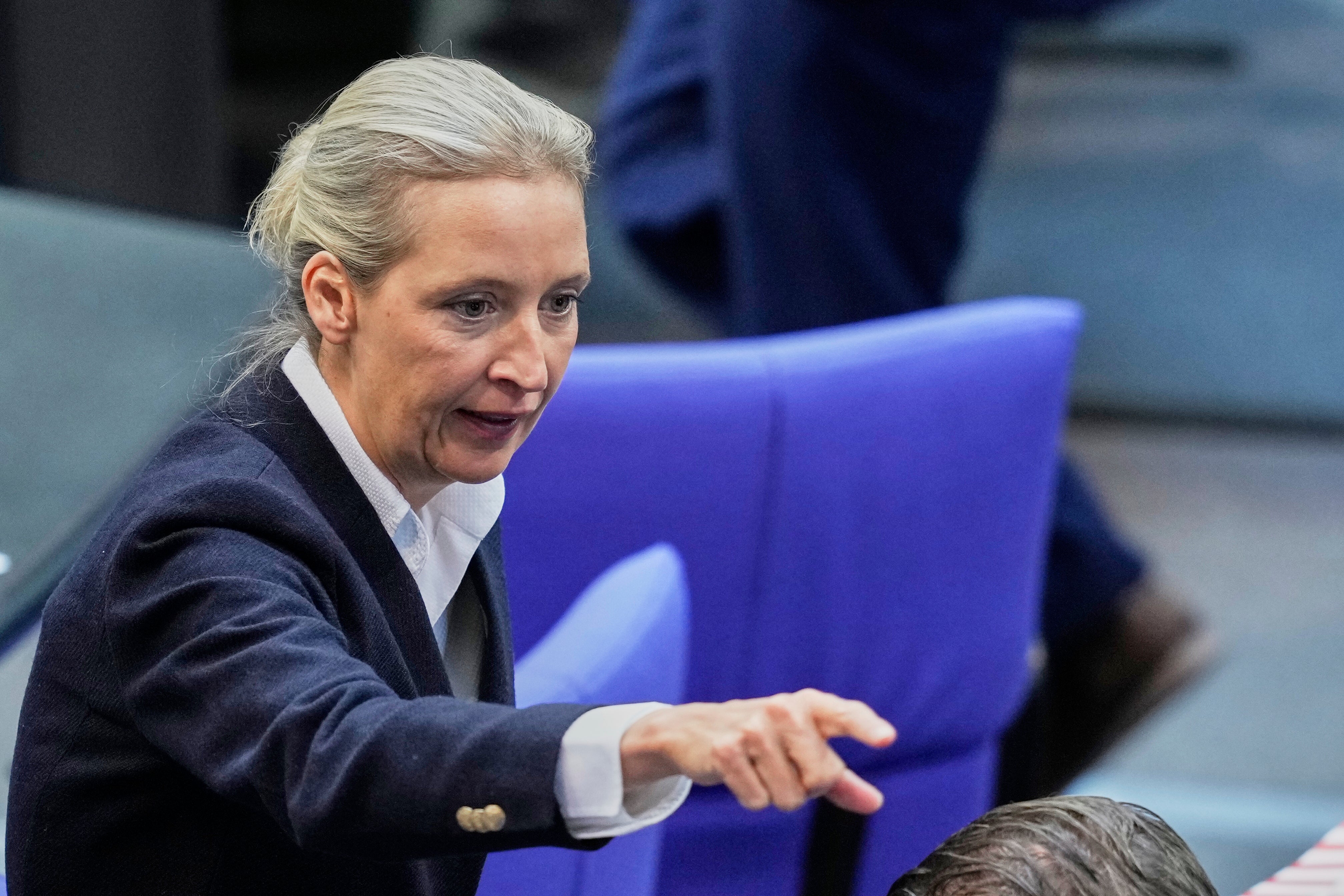Germany’s Merz confirmed as chancellor in second parliamentary vote after shock first-round defeat
New leader suffered humiliating loss in the first round, falling six votes short of an absolute majority

Friedrich Merz has been confirmed as the new chancellor of Germany after a second vote in the country’s parliament, hours after falling six votes short at the first attempt in an unprecedented and humiliating defeat.
The 69-year-old had been expected to smoothly win the vote to become Germany's 10th chancellor since the Second World War. But no other post-war candidate for chancellor has failed to win on the first of the secret ballots – a significant blow to Mr Merz’s prestige.
Mr Merz, who led his conservatives to a federal election victory in February and signed a coalition deal with the centre-left Social Democrats (SPD), won just 310 votes in the Bundestag in the first vote in the morning, six short of an absolute majority. At least 18 coalition legislators failed to back him, although the secret nature of the ballot means it may never be known whether it was members of his centre-right Christian Democratic Union (CDU) and its Bavarian sister party, the Christian Social Union (CSU), or members of the SPD that voted against him.
The SPD’s poor performance in February’s election, the worst in its post-war history, means the coalition is one of the slimmest majorities in decades, holding just 52 per cent of the vote. The SPD and the CDU had spent months making concessions to one another to form a viable coalition. The SPD had come under fire from some of its younger ranks for agreeing to the CDU’s tougher migration rules and cuts to employment benefits.
Mr Merz received 325 votes in the second ballot in the afternoon, still short of the 328 members contained in the coalition. “Madam Speaker, thank you for the trust,” a visibly relieved Mr Merz said to the Bundestag president Julia Klockner after she announced the result. “I accept the election.”
The rare second vote was held just six hours after the first, following conversations with four factions, including the Left and the Greens, who agreed to bypass standard procedural delays. Upon announcing the second vote, the head of the CDU bloc in parliament, Jens Spahn, said: "The whole of Europe, perhaps even the whole world, is watching this second round of elections."
Germany has the EU's biggest economy and is a diplomatic heavyweight. The new chancellor's portfolio would include the war in Ukraine and the trade policy of Donald Trump’s US administration, on top of domestic problems such as Germany's stagnant economy and the rise of the far-right, anti-immigrant party Alternative for Germany (AfD).

The AfD is the biggest opposition party in Germany's new parliament after it came second in February. Despite its historic gains, it was shut out of coalition talks due to the so-called "firewall" that mainstream German political parties have upheld against cooperating with far-right parties since the end of the Second World War. The AfD was classified as a “right-wing extremist effort” by the country’s domestic intelligence agency last week.
Alice Weidel, co-leader of the AfD, had tried to take advantage of the parliamentary vote debacle by slamming Mr Merz's failure in the first ballot as proof that his coalition has a "weak foundation". She called for Mr Merz to resign immediately and for new elections to be held.
“Merz failed to secure a majority because he had to abandon large parts of his own campaign platform in order to buy the SPD’s support. In doing so, he disappointed parts of his own party while still not conceding enough to satisfy the SPD,” AfD spokesperson Torben Braga told The Independent.
Mr Merz is due to travel to Paris and Warsaw on Wednesday to discuss European defence strategy. He is also due to preside over ceremonies marking the 80th anniversary of the end of the Second World War on Thursday, before heading to Brussels on Friday to meet EU and Nato leaders.
The shadow of the war in Ukraine also loomed over Tuesday's vote. Germany is the second-largest supplier of military aid to Ukraine, after the United States. Overall, Germany is the fourth-largest defence spender in the world, according to the Stockholm International Peace Research Institute, which studies trends in global military expenditure. Only the US, China and Russia are ahead of them.
Germany rose to that rank thanks to an investment of €100bn (£85bn) in its armed forces, a measure passed by legislators in 2022. Defence spending rose again earlier this year, when parliament loosened the nation's strict debt rules. It's a move that has been closely watched by the rest of Europe as the Trump administration has threatened to pull back from its security support on the continent.
Aside from ramping up defence spending, Mr Merz's coalition has pledged to spur economic growth and catch up on long-neglected modernisation.
Reuters and Associated Press contributed to this report
Join our commenting forum
Join thought-provoking conversations, follow other Independent readers and see their replies
Comments
Bookmark popover
Removed from bookmarks